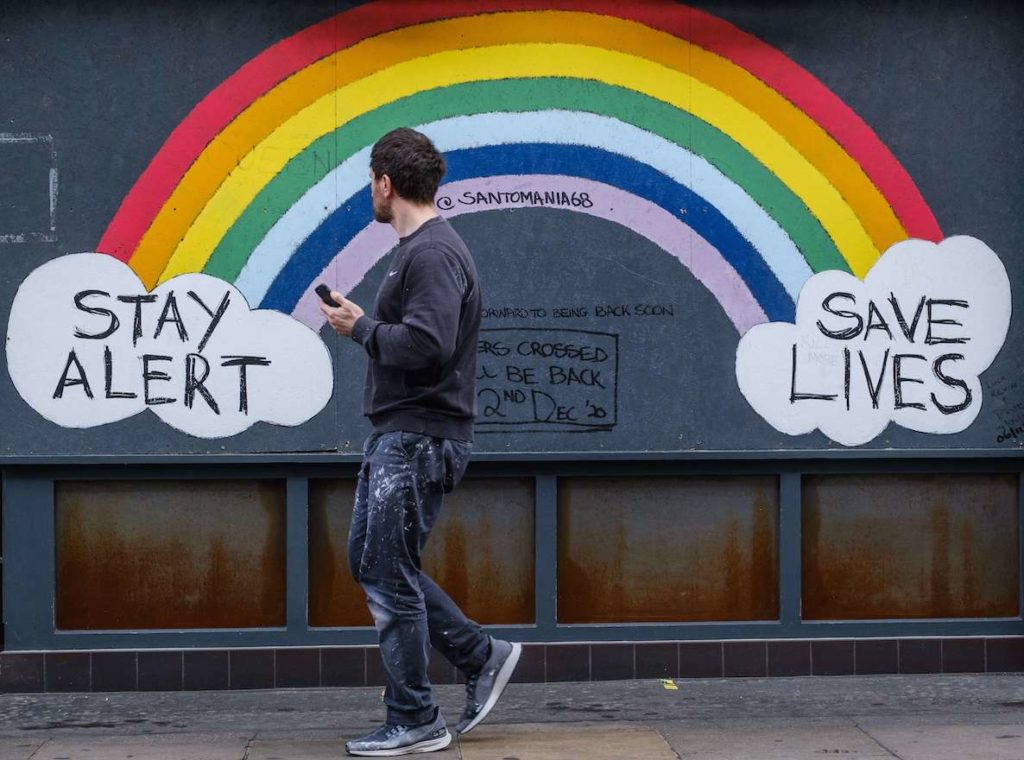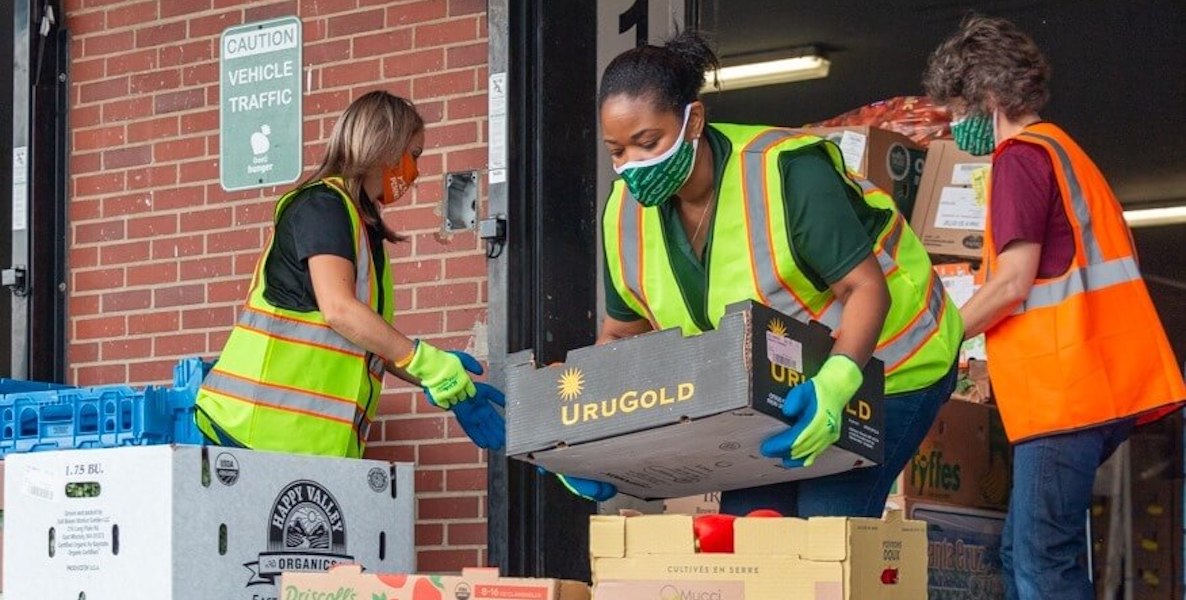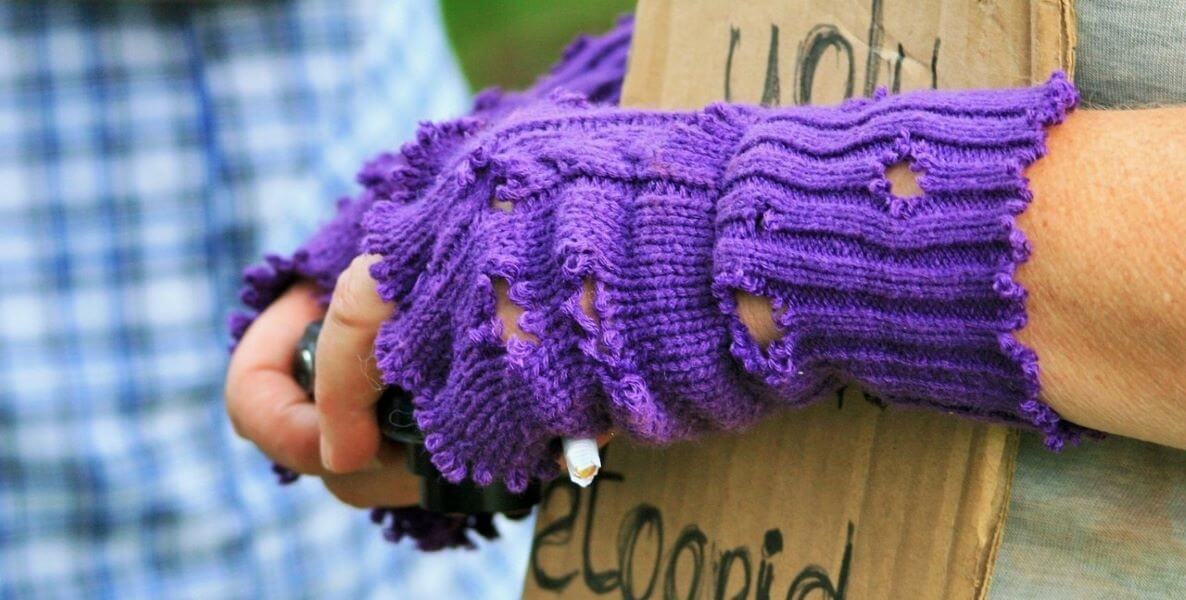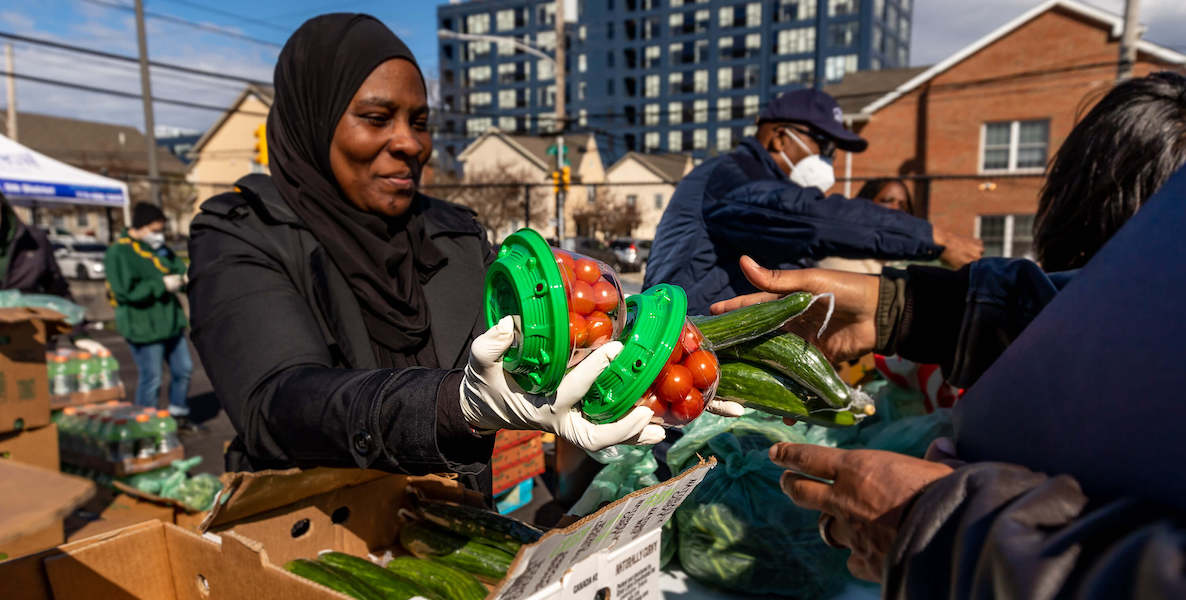With a few vaccine options on the horizon, we (finally!) have a reason to feel hopeful on the Covid-19 front. In the meantime, as we know too well, the virus and its impact is still wreaking havoc on people’s lives. We here at The Citizen continue to hear from communities in need—as well as people and groups who are determined to help them.
Indeed, hard times like these are when Philly shows its best self—when neighbors band together to support their independent stores, when community organizations pivot from serving one need to filling a more time-sensitive one, and when every Philadelphian has the drive and the power to make a difference.
Keep scrolling for an ongoing and regularly updated list of ways you can help during the coronavirus pandemic in Philadelphia, or scan it by section to match your area of interest.
How to help during the coronavirus pandemic

LIMIT THE SPREAD OF COVID-19
It’s the first and easiest thing anyone can do to help one another during the pandemic. Masks slow the spread of the virus. Period. So put one on every time you leave your house, wash your hands, and stay home as much as you possibly can. You’ve heard it all before, but it’s as true as it ever has been, and the CDC has a great primer here. And check out the latest on the city’s shutdowns and safety precautions here.

DONATE TO THE CITY’S COVID-19 RESPONSE FUND
Way back in March, the city announced a partnership with area foundations and businesses to create a fund for area nonprofits serving people in need during the crisis. Seeded with an initial $6.5 million from United Way, Philadelphia Foundation, William Penn Foundation and others, the fund is still accepting donations as low as $25, all of which will go to nonprofits serving at-risk Philadelphians. More than 8,000 people have donated to date.

HELP THE ELDERLY DURING THE PANDEMIC
The elderly are the most vulnerable, and also often the most in need of things like medications and other household items. They may need help from their neighbors bringing those home from the drugstore or market. We should all keep our distance in order to keep them safe, checking in by calling, texting, Facebook messaging, standing on the stoop, or talking through a crack in the door.
- Organizers at Philly We Rise created a mutual aid resource guide, which includes a number of organizations busy helping specific groups in the city, including those focused on the elderly (like this network set up by the Philadelphia Liberation Center and the Norris Square Community Action Network, or like Philly Thrive). You can scan the list to see what services are needed near you—things like prescription pick-up, grocery delivery, transportation and direct monetary donation. You can also join your neighborhood Facebook group to find out who and how you can help.
- The Philadelphia Corporation for the Aging is continuing to offer grab-and-go meals around the city (see the map of locations here). They are asking supporters to consider donating to their Rodney D. Williams Philadelphia Fund for Seniors, which has helped the organization meet the increased need in the city right now, or to their Emergency Fund for Older Philadelphians, contributing to food, fuel, and medical supplies for the agency.
- Senior Citizens United Community Services is keeping its doors open during this crisis, but asks that volunteers or the general public limit themselves showing up one person at a time, versus in any kind of group. They need volunteers to help deliver food, shop for those who can’t leave their homes and potentially offer occasional clerical-type work. Those interested in volunteering can call 856-456-1121, ext. 160.
- Kleinlife, which operates in Northeast Philadelphia, needs drivers willing to deliver meals to their 600-plus elderly clients throughout the Philadelphia area, including in the Northeast, Center City, and West Philadelphia. Volunteers will wear a mask and receive their meals for delivery and their routing information outdoors. (They ask anyone with medical conditions or symptoms of illness not to volunteer.) Those interested can email hrothbaum@kleinlife.org for more information.

SUPPORT THE HOMELESS
- Project HOME has—for the time being—put their usual request to help fulfill in-kind needs on hold. However, you can still help out: They need masks for their 1,000 residents, which you can read about here; you also can sign up for their GroceryLifeLine program to make sure that residents have what they need. Finally, in the spirit of social distancing, you can always shop for Project Home needs via the Amazon wishlist here. With the situation evolving daily, they’re grateful for any financial contributions, to help cover the costs of unpredictable needs as they arise.
- The Salvation Army is still serving the hungry and homeless at their shelters, and is grateful for any donations you can make here.
- The Sunday Love Project is, in Covid times, serving meals to go instead of sit-down meals. Volunteers can make sandwiches or snack bags … though be advised that around the holiday times, they tend to have more than enough people helping. Come January and February, though, help is very much needed and appreciated. (That said, if you want to volunteer now OR later, they rarely turn people away, and you can sign up here.) They’re also requesting specific food donations, which donors can find on their Amazon Wish List. You can also donate to their School Pantries, which collects and delivers food to kids who don’t have easy access to food when they’re not in school.
There are loads of other ways to help Philadelphians experiencing homelessness during COVID—and most of them are fairly simple. Check out The Citizen’s guide to helping homeless Philadelphians for more ideas.

SUPPORT RESTAURANTS AND FOOD INDUSTRY WORKERS
- The Philly Virtual Tip Jar is a collection of a list of restaurant workers who have lost their jobs, at least temporarily, or suffered drastic loss of income over the past tumultuous year. You can go here to find a server you know or someone from a restaurant you frequent and donate to them individually and directly via PayPal, Cash App, or Venmo.
- And while the Philly map of Takeout Covid can help you order food, cocktails, wine and beer for delivery or take-out as a convenient way to help keep local spots in business, you can also just remember to call your local favorites if they’re open for takeout (or curbside pickup, which means they don’t have to share any profits with delivery services), for gift cards (a great option as the holidays approach!) or for outdoor dining.
Obviously, the more we find ways to patronize our local restaurants, the better they’ll fare. And meantime, we can all continue to call our electeds and push for restaurant relief.

HELP THE HUNGRY—AND GET FOOD IF YOU NEED IT
By June, Philabundance had reported nearly a 60 percent increase in clients: And now, most kids are still out of school, and unemployment is still rampant.
- The organization’s largest need is for monetary donations to purchase quality food items like produce, meat, and dairy, as food prices have gone up significantly due to supply chain issues caused by the pandemic. They’re also seeking healthy volunteers to help pack emergency food boxes; sign up here. (While Philabundance is taking every measure to keep their facilities 100 percent sanitary, they understand that immunocompromised volunteers should not be out and about at this time.) You can also donate food to its many partnering agencies—or host a food drive to donate in bulk.
- If you or someone you know need it, anyone can find free food pickup points here, and families with students in the District can visit the city-wide sites for free breakfast and lunch.
- Krishna Foods’ Food Relief Program is serving up free, fresh, healthy and hot vegan meals right outside their Fishtown HQ at Mantra Lounge one day a week (generally, Saturdays, but you might call, text, and or check the website to verify before you go). You can swing by to donate, or consider sponsoring a plate via Venmo (@mantralounge), CashApp ($mantralounge), or the other payment options found here. (Note: They also appreciate any efforts made to get the word out about the program: You can pick up flyers at Mantra or tell anyone who might need a meal about the program.)
- At ForPhilly.com, you can sign up to package and serve take-out meals alongside Chosen 300 Ministries for about an hour-and-a-half at a time at a variety of outdoor locations.
Want more easy ways to help get food to Philadelphians who need it? Check out our vast and recently updated Citizen guide toward fighting food insecurity in our city.

MENTAL HEALTH RESOURCES FOR YOURSELF AND OTHERS
Something like one in five of us struggle in any given year with mental health issues … and 2020 isn’t exactly any given year. Many people are having a hard time right now; some of us are having a harder time than usual with mental health.
- One resource for you or for anyone you know who might benefit from reaching out to a mental health provider is this Covid-19 resource page from the Anxiety and Depression Association of America. In a crisis situation, you can text CRISIS to 741741 to be connected to a trained crisis counselor for free, confidential support 24/7.
- Council for Relationships (CFR), a nonprofit committed to providing therapy for everyone who wants it, helps connect people to online/phone therapy sessions with a fee structure that starts as low as $50/hour. There’s also currently a waiting list for new patients who can take advantage of the CFR community fund, which provides free counseling services to people affected by COVID: health care providers, first responders, grocery store employees, delivery people and other essential workers who have been serving the public since the pandemic’s onset. You can donate to keep that fund going and support the low-fee services program, here.
- Finally, the Philadelphia School District has compiled a truly helpful list of all sorts of both Covid-19 health and mental health resources, from advice on helping kids deal with anxiety to resources for grieving children to suicide prevention hotlines, and more.

CONTRIBUTE TO PUBLIC ART PROJECTS
In March, the all-volunteer project Fill The Walls With Hope put out a call for artists and poets to create works to be installed around town: Since then, they’ve installed upwards of 1,500 posters, yard signs, banners and vinyl decals around the city (and beyond.)
- You can join in by making your own piece of art, supplying a building on which to hang large wheatpaste installations, donating or just downloading a print to hang in your window.
- Another good option that’s a perennial go-to is, of course, donating to Mural Arts Philadelphia, which continues to support (and create) public art and enable the artists who make it, even throughout (and, in some cases, because of) the pandemic.

PROVIDE HOUSING FOR PATIENTS AND THEIR FAMILIES
Hosts for Hospitals is a Greater Philadelphia nonprofit that’s spent the last 20 years lodging out-of-town patient-families with and at the homes of volunteer hosts. During the pandemic, the agency has successfully switched to providing lodging through a continually growing network of “private-setting” housing: AirBnBs, carriage houses, in-law suites, unused corporate apartments, vacant homes and apartments of people away at second homes.
Two types of patients are especially in need of lodging: First, women who are need to give birth and have their babies cared for at CHOP (as the wonderful Ronald McDonald Houses can now only lodge parents of patients, not siblings), and second, recipients of out-patient radiation, as the American Cancer Society no longer subsidizes hotel stays.
Hosts for Hospitals, which can be a lifesaver for these patients, is often near or at capacity. So lodging offers, for any length of time, are welcomed now through next summer. (This is your chance to pay it forward, snowbirds and AirBNB hosts!) Call 484-380-2999 or email lodging@hostsforhospitals.org to offer up your space. Don’t have a place to lend? You can support the cause by donating here.

DONATE MONEY
- Call the nonprofits you love, and find out how you can support them at a time when fundraisers like galas, events, and drives have been shelved. Now more than ever, nonprofit organizations need funding to carry out meaningful work, which has, in many cases increased and ballooned to include services they didn’t plan for. Meaning that in addition to simply donating to general funds, you might also search out which of your favorites have created emergency or Covid funds.
- For instance? Early in the pandemic, the Jewish Federation of Greater Philadelphia set up an emergency fund to be distributed through schools, synagogues, and other Jewish-affiliated organizations in the region: By July, they’d collected and leveraged more than $2.6 million to support the elderly, children, families, and those who are recently food-insecure and out of work. Want to help? You can donate here and learn more about the fund here.
- There’s also Philadelphia’s Covid-19 Emergency Rental Assistance Program, which has served almost 10,000 families with some $80,000 donated from citizens. In fact, it’s been so successful that the city is seeking to raise $7 million to keep it going, in hopes of serving 600 families over two years. You can donate here to play a part.

SUPPORT SMALL BUSINESS, HELP EMPLOYEES
This is obviously always a good thing to do, but it’s even more important now, when local businesses are likely to suffer from social isolation.
- Check on your local go-tos, and ask whether they’re open for online business, how you can (safely) support them with gift cards or in other ways.
- PowerCorpsPHL, a nonprofit that trains young people for jobs of the future, is in need of devices (like Chromebooks) and mobile hotspots to sustain their distance-learning. Want to make a tech donation or find out more about supporting their needs? Contact JuliaHillengas@educationworks.org.
- Circles of Aunts & Uncles—a nonprofit that offers support (financial and otherwise) for local entrepreneurs—has set up a GoFundMe to fund loans for local businesses in Covid times, and put together a guide for how you can help support the locally owned ecosystem.
- The Merchants Fund (TMF) has provided support to merchants and small businesses during times of financial hardship since 1854. You can now donate to the Merchant Relief Fund to support small businesses in Philly, particularly those in under-resourced areas with little access to other programs.
- Support South 7th Street Shops Gift Certificate Program: For a limited time (and, helpfully, right before the holidays!), you can buy a gift certificate for a participating store on South 7th Street, and SEAMAAC, Inc., will match your purchase at 50 percent to help keep local stores in business.

TAKE CARE OF PETS
- The Pennsylvania SPCA is in need of financial donations. As with Philabundance, dollars go further than in-kind donations … however they’re always in need of treats, toys, and blankets. And they’re doing adoptions by appointment now, too.
- ACCT Philly is asking Philadelphians to consider fostering long-term, fulfilling donation requests on ACCT Philly’s Amazon Wish List, or adopting. Find more info here.
- Likewise, Philly PAWS is continuing to serve homeless animals as well as caring for people’s pets; they’re gratefully accepting donations to their emergency fund to help them weather the pandemic. They’re also accepting adoption applications for specific animals currently in the shelter.
- For your own pets, it’s helpful to be sure you have enough food (and, for cats, litter) if you’re stuck quarantining: You might also check in with elderly neighbors to ensure they do, too. If neighbors who are quarantined or elderly have animals with medical issues, helping transport their pets to appointments can be crucial.
- The Humane Society of the United States has been supporting Philly residents who are part of their Pets for Life program with pet food, medication, and emergency veterinary care. Support their work here.
- You can also support one of the small handful of area food banks or pet-food delivery services that also supply pet food for people (and pets) in need.

DONATE BLOOD AND PLASMA
The Red Cross currently faces a critical need for blood donations to prevent the blood shortages we saw early in the pandemic. They’re testing all blood, platelet and plasma donations for Covid-19 antibodies to provide donors insight into whether they may have been exposed to the virus. To make an appointment to donate blood and receive your antibody testing results, visit here.
They’ve also collected and distributed thousands of convalescent plasma products, a potentially lifesaving treatment for critically ill Covid-19 patients; they encourage fully recovered individuals to complete their Donor Information Form here.

SUPPORT DOMESTIC WORKERS
In March, the National Domestic Workers Alliance set up the Coronavirus Care Fund, from which they were able to distribute money to more than 40,000 nannies, house cleaners and home-care workers. While they are no longer accepting first-time applications, the fund is still collecting money to support these oft-overlooked workers, giving them a safety net that will enable them to stay home, and stay safe. Donate here.

HELP IMMIGRANTS AND REFUGEES
- With immigrants and refugees being disproportionately affected by the pandemic, the Nationalities Service Center has set up an emergency relief campaign; proceeds will go directly to clients for food, housing and rental assistance, linking people to medical care, helping people who have lost jobs, and helping families navigate virtual learning. You can donate here.
- There’s also the longstanding South Philly-based immigrant-and-refugee-facing nonprofit SEAMAAC, which pivoted almost immediately after Covid hit to focus on Hunger Relief, including food giveaways and grocery delivery, as well as Covid testing … all while still delivering as many of their regular programs and services as they could given the safety precautions and restrictions. Want to help? Read up on volunteering here, or donate money to the organization here.
With additional reporting by Christy Speer Lejeune, Kiersten A. Adams, Kellie Brown and Katherine Rapin







